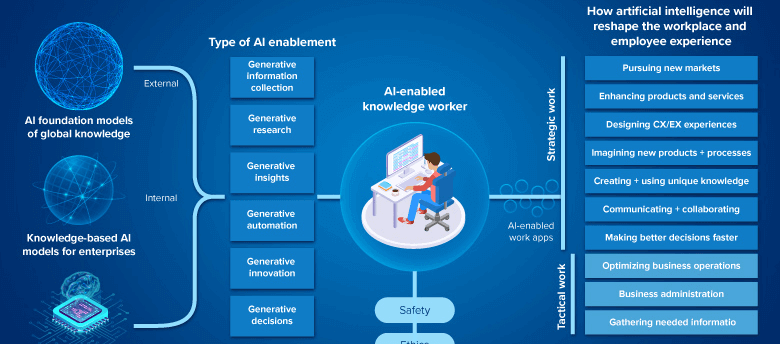Harnessing Generative AI: A Catalyst for Digital Transformation
Generative AI is at the forefront of digital transformation, reshaping how businesses innovate and operate. By automating complex processes, enhancing decision-making, and driving personalized experiences, AI empowers companies to be more agile and efficient. It unlocks new growth opportunities, enabling businesses to stay ahead in a rapidly evolving digital landscape. With generative AI, the future of innovation is now.
AI IN BUSSINESS
9/20/20242 min read


Introduction to Generative AI
Generative AI has emerged as a significant force in the landscape of technology, characterized by its ability to create new content and solutions. As businesses seek innovative approaches to streamline their operations and enhance customer experiences, generative AI presents a transformative opportunity. This remarkable technology underpins various applications, from automating content creation to enhancing decision-making, thereby playing a vital role in the ongoing digital transformation across industries.
The Impact on Business Processes
One of the foremost contributions of generative AI is its potential to refine and optimize business processes. By integrating generative AI into their workflows, organizations can automate repetitive tasks, resulting in increased efficiency and reduced operational costs. For instance, generative AI can analyze vast datasets and generate actionable insights, equipping companies to make informed decisions faster than ever before. Such capabilities not only improve productivity but also foster a culture of innovation, enabling businesses to adapt and thrive in the ever-evolving digital landscape.
Enhancing Customer Engagement
Generative AI significantly enhances customer engagement by personalizing interactions and crafting tailor-made experiences. Organizations are leveraging this technology to analyze customer preferences and behaviors systematically. By generating customized content and suggestions in real-time, businesses can better cater to their customers’ needs. This personalized approach not only increases customer satisfaction but also drives loyalty and retention, characteristics that are vital in today’s competitive market.
Moreover, generative AI facilitates the creation of interactive customer interfaces, such as chatbots powered by advanced natural language processing. These intelligent systems can engage with customers more effectively, providing assistance that feels both timely and relevant. As generative AI continues to evolve, its implementation across customer service channels represents a significant leap towards fully personalized customer experiences.
Conclusion: The Future of Generative AI in Digital Transformation
As digital transformation continues to reshape the business landscape, the role of generative AI becomes increasingly crucial. Not only does it enhance operational efficiency and customer satisfaction, but it also drives innovation and strategic growth. Businesses that embrace generative AI can expect to stay ahead of the curve, leveraging its capabilities to create new revenue streams and forge deeper connections with their audiences.
In conclusion, the potential of generative AI as a catalyst for digital transformation is immense. Organizations poised to adapt and integrate this transformative technology will undoubtedly find themselves leading the charge into a new era of efficiency and advancement. Embracing generative AI is no longer optional; it is a necessity for any business aspiring to succeed in the digital age.
